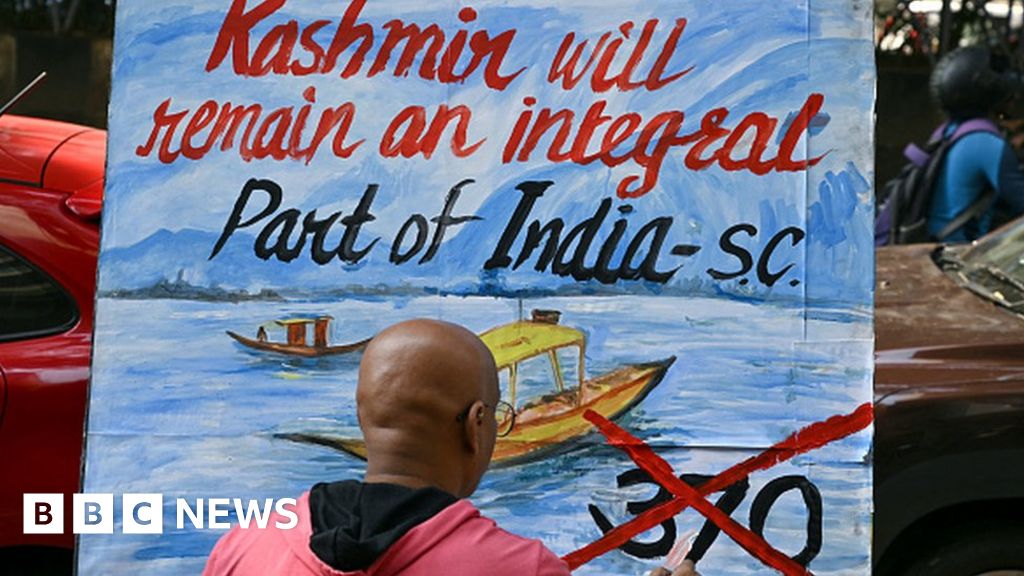The Supreme Court verdict upholding the abrogation of Article 370 is a milestone in the history of Jammu and Kashmir. The decision, which had been a subject of intense debate and legal battles, not only reshapes the constitutional landscape of the region but also has implications for the socio-political fabric of India.

Also Read: Hong Kong Patriots Only Election Sees Record Low Turnout of 27.5%
Article 370 was a temporary provision in the Indian Constitution that granted special autonomy to the state of Jammu and Kashmir.
This autonomy allowed the state to have its own constitution, a separate flag, and decision-making powers in certain matters, excluding defense, foreign affairs, finance, and communications, which remained under the jurisdiction of the Indian government.
The provision was intended to be a temporary measure, facilitating the integration of Jammu and Kashmir into the Indian Union.
Over the years, Article 370 became a point of controversy, with critics arguing that it impeded the complete integration of Jammu and Kashmir with the rest of India.
The special privileges granted under this provision, especially Article 35A, which allowed the state to define permanent residents and accord them exclusive rights.
The abrogation of Article 370 was a move by the Narendra Modi-led government in 2019, fulfilling a promise of the ruling Bharatiya Janata Party (BJP).
The decision, executed through a Presidential Order, sparked debates on the constitutionality of such a move and its impact on the rights and identity of the people of Jammu and Kashmir.
The Supreme Court verdict, upholding the government’s decision to the legal discourse. The court’s judgment not only validates the abrogation but also addressed the constitutional authority of the Parliament to make such amendments.
Also Read: Russia’s Presidential Election to be Held on March 17, 2024
This decision settles the legal uncertainty surrounding the fate of Article 370 and provides clarity on the constitutional status of Jammu and Kashmir.
The abrogation are multifaceted. One of the most changes is the reorganization of Jammu and Kashmir into two separate union territories – Jammu & Kashmir and Ladakh.
This restructuring is aimed at facilitating better governance, development, and security measures in the region.
Supporters argue that the abrogation of Article 370 will lead to greater economic development, investment, and job opportunities in the region.
The bifurcation into union territories is seen as a move to streamline administrative processes and address issues. However, critics express concerns about the erosion of cultural and political identity.
An aspect of the abrogation was the nullification of Article 35A, which granted special privileges to permanent residents of Jammu and Kashmir.
This provision had far-reaching implications, especially regarding property rights, employment opportunities, and educational benefits.
Also Read: Meta Shuts 4,800 Fake Accounts Over Alleged China-based Influence Campaign
The Supreme Court’s verdict not only upholds the removal of Article 35A but also highlights its questionable origin through a Presidential Order in 1954.
The abrogation of Article 370 has concerns about human rights violations and a security crackdown in the region.
The government’s decision to impose communication restrictions and detain political leaders in the aftermath of the abrogation raised.
While the Supreme Court’s recent verdict asserts the constitutional validity of the government’s actions, questions about civil liberties, freedom of expression, and the right to dissent persist.
Pakistan, a stakeholder with territorial claims on Kashmir, opposed the move, terming it as a violation of international law.
The response has been diverse, with some nations expressing concerns about the escalation of tensions between India and Pakistan, while others maintain a more reserved stance.
The Supreme Court’s verdict will likely influence international perceptions of India’s commitment to democratic principles and constitutional governance.
The government’s ability to address concerns raised by the peaceful transition in Jammu and Kashmir will be closely monitored, impacting India’s diplomatic standing on the global stage.
Also Read: Gunfire in Guinea-Bissau’s Capital as Minister Freed from Custody






















